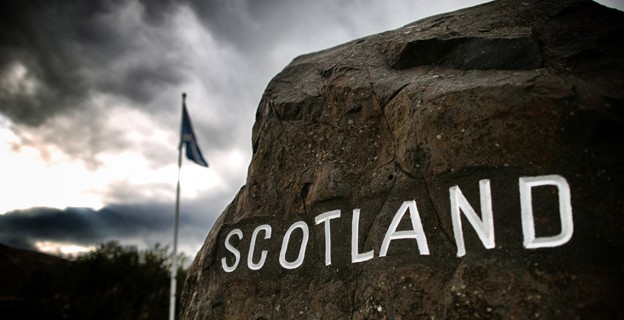Economists can’t tell Scots how to vote

Here is the bad news if you haven’t made up your mind whether to vote for Scotland to become independent – economic analysis cannot give you the answer.
That is partly because this dismal science is not capable of giving wholly (and sometimes even partly) accurate forecasts about the future prosperity of nations.
Look at the case of a comparably sized small country, Ireland. A decade ago many economists (and others) saw it as a rip-roaring success, that had become considerably richer on a per-head basis than the UK.
Then three years ago it looked like a total basket case, as its property sector and banks imploded.
Today it can be seen as a model of how a determined small country can reconstruct its economy in adversity, in stark contrast to the inertia in a bigger country such as Italy.
According to IMF calculations, Ireland is still generating a bit more income per capita than the UK. But, my goodness! It has experienced misery in the past few years, in the form of savage wage cuts and high unemployment.
So does the experience of Ireland prove the case for or against Scottish independence?
Well it shows the risks of being small and placing too many bets on one or two economic sectors. But it also shows the benefits of a strong national identity, which empowers a government to respond fast and boldly to prevailing economic conditions.
Ireland is still considerably richer than it was two decades ago. But the ride since then has been, well, a bit hairy.
So if, as a voter in the Scottish referendum, you think Ireland is at all analogous to Scotland, what you would ponder is whether you are attracted by the flexibility and room for manoeuvre that seems to be associated with being a small nation, or whether you prefer the ability to pool and share risks – the shelter in a storm – that comes from being part of a bigger country.
In Scotland, oil and pensions seem to illustrate this choice or trade-off.
If, as seems likely, an independent Scotland was endowed with 90% of the UK’s oil-producing assets, it would have the ability to deploy the associated tax revenues to nurture a more diverse private sector and to tailor public services to Scottish preferences.
But there are substantial risks here. What if the oil price continues to weaken and if production declines as rapidly as many analysts fear it will? If Scotland failed to invest the oil dowry fast enough and astutely enough, it could find itself a poorer and weaker nation than would pertain if still part of the UK.
In oil, to labour the point, there are both opportunities from independence, and risks.
The same is true of pensions. With more retired people relative to tax-paying workers in Scotland than in the rest of the UK, the cost of pensions in Scotland is a bit higher than in the UK as a whole. So remaining part of the UK would help make pensions more affordable for Scotland, by spreading the costs over a larger population.
But if the government in Scotland were to encourage immigration, that burden on Scotland could fall. And anyway, Scots may want to pay a bit more for a state pension that captures preferences that are different from those in the rest of the UK – which may be a delayed rise in the pension age, as mooted by the Scottish government.
Again there is a trade-off between safety and opportunity.
There is one other point about Ireland that is worth considering.
Ireland’s economic growth as a so-called “celtic tiger” pre-dated its membership of the euro. But that growth became dangerously supercharged when its cost of borrowing plunged after the launch of the euro.
Now there is zero chance in the short term of money becoming perilously cheap in Scotland.
The cost of borrowing for Scotland as a new nation will rise, a bit, for a while. This is inevitable, while uncertainties about what currency it will use are addressed, and as its government acquires a track record as a budget maker and borrower.
And it is not just the direct cost of finance that would probably rise. As social scientist Perri 6 has pointed out, anyone across the border engaging in a long term contract for the supply of goods and services in Scotland is likely to hike the price, to cover the currency-devaluation risk. And that would squeeze the public sector, including the NHS, as much as the private sector.
This increase in the cost of capital could spur Scotland to become a more competitive and less wasteful economy. To use a hideous analogy, this would cast an independent Scotland as an efficient leveraged buyout.
Or it could lead to an economic slowdown and a loss of income that would take many years to claw back.
All that said, what Ireland demonstrates is that a small English-speaking independent country, in the European time zone, with a highly educated population, a culture of hard work and a strong sense of patriotism is likely to prosper in the long term.
What Ireland cannot prove one way or another is whether the immediate economic tariff or price for that putative long term prosperity is worth paying.
Author: Robert Peston, Economics editor





























